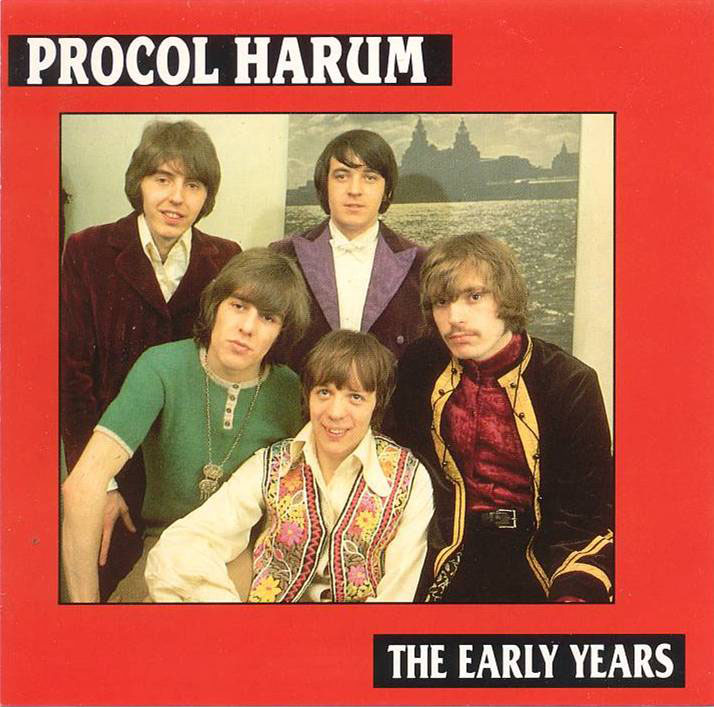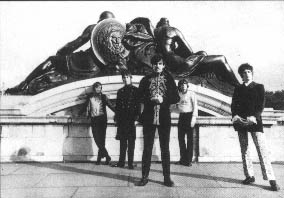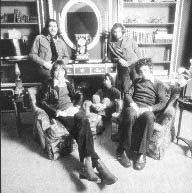
Procol HarumBeyond
|
|
PH on stage | PH on record | PH in print | BtP features | What's new | Interact with BtP | For sale | Site search | Home |
|

Monsieur Armand (early version of Monsieur R Monde) |
|||
Conquistador (original) |
|||
Compiled by Laurie Pryor and Mark Brennan: special thanks to Henry Scott-Irvine for his advice and photographs
Liner notes
For a group that had a UK chart-topper with their very first
single, 1967's A Whiter Shade of Pale, Procol Harum's
early years were decidedly eventful when all should have been
plain sailing to further success. Their début album took several
months to follow the single, losing much of the momentum - and
when it finally came out (on a different record label), the
British version didn't even include the track in question!
Personnel and managers came and went, causing further uncertainty, while the tabloid press (or broadsheet press as it was then) managed to create a storm in a teacup over session drummer Bill Eyden's involvement in the hit single's recording session when producer Denny Cordell preferred him to the newly recruited stickman Bobby Harrison. 'Band don't play own instruments, shock, horror ...'

Happily the good ship Procol survived to grace the Sixties and Seventies with some great music, of which The Early Years represents an appealing and substantial chapter. In 1991, singer / pianist Gary Brooker, organist Matthew Fisher, and guitarist Robin Trower (who replaced original axeman Ray Royer) made an impressive first step on the comeback trail after a 14-year break with The Prodigal Stranger: all three feature throughout The Early Years, as does lyricist Keith Reid, the non-playing band member whose way with words had so much to do with the band's enduring appeal.
The sources of our 20 tracks are documented in detail overleaf; Monsieur Armand was elaborately re-recorded for the Exotic Birds And Fruit album in 1974; along with Seem To Have The Blues (Most Of The Time) [sic], the original dates from the first album sessions on 20 October 1967 at London's Olympic Studios, and the first saw the light of day nine years later in the long-since-deleted Rock Roots compilation. Conquistador was also revisited, this time live with the Edmonton Symphony Orchestra, and was a 1972 hit single from one of the more successful of the decade's many classic-rock fusion projects.

Three non-album B-sides are featured alongside tracks from Procol's first four albums, all released on the Regal Zonophone label (hence the reference in the song Magdalene). As for those personnel changes, drummer BJ Wilson (who died in 1990) replaced Bobby Harrison early on, while bass and organ switched in the spring of 1969 from David Knights and Matthew Fisher to Chris Copping, who doubled on both instruments. He features on 1970's Home, from which our final four tracks are taken, though aficionados may notice less emphasis on organ on these selections. Whiskey Train indeed, is a Trower/Reid composition, underlining the guitarist's progress towards a forthcoming solo career.
Yet throw away this sleeve note and you'd be hard-pressed to notice any dramatic changes of direction in Procol's pleasingly English brand of rock music. As the band moved to the Chrysalis label from the second phase of their career, beginning with 1971's Broken Barricades (Trower's last album) they left the Early Years - and probably their most distinguished musical moments - behind.
It was all a long way from the Paramounts, Southend's answer to the Rolling Stones who, mere months before A Whiter Shade Of Pale, had been pounding out basic, American-influenced R&B several light years away from the sophisticated sounds the same musicians play here. When Chris Copping joined the ranks, Procol's line-up was identical to the Paramounts circa 1963! Perhaps that's why the band took their unusual name from a Latin phrase meaning 'far from these things'. Twenty years or more on, this is still far-out listening. Notes by Michael Heatley Thanks to Richard Beck for information and pictures
More compilation albums
Discussion of this album's version of In The Wee Small Hours of Sixpence
PH on stage | PH on record | PH in print | BtP features | What's new | Interact with BtP | For sale | Site search | Home |